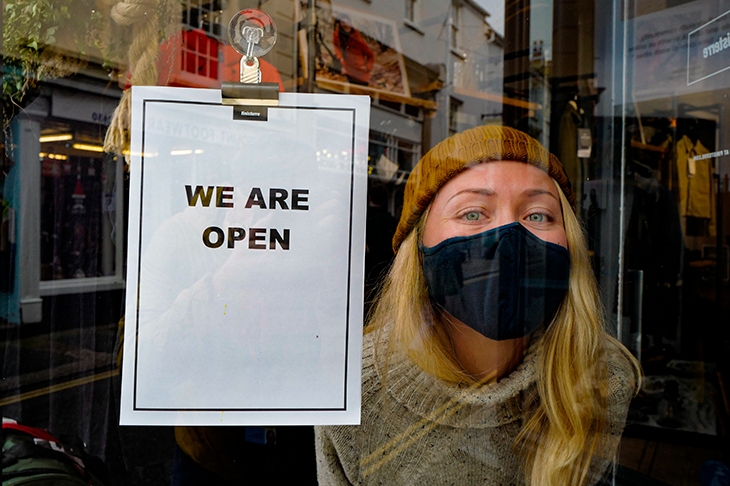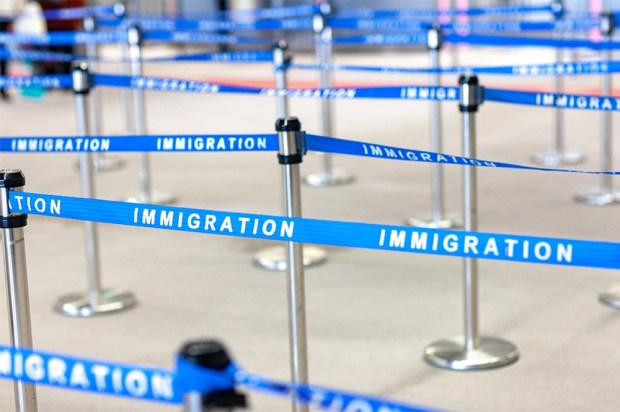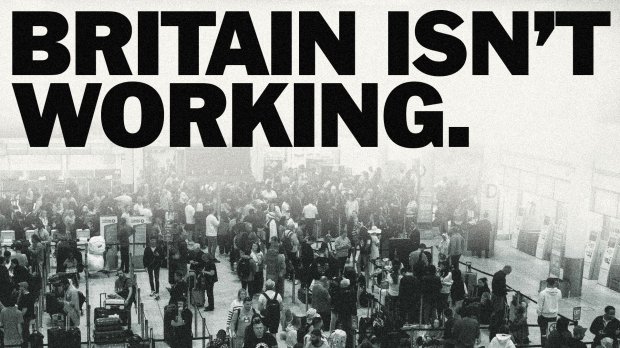The scare over the Indian variant of coronavirus this week is a taste of what to expect over the next few weeks, months or even years. Like all RNA viruses, Covid-19 mutates and has done so thousands of times already. New strains supplant old ones and, for a while, questions will be raised when one mutation comes to dominate. Is it more lethal? Is there a chance it could evade vaccines? Every time so far, there has been no significant reason to doubt the efficacy of the vaccines. So the government’s timetable for lifting Covid restrictions holds firm.
How far should Britain go to try to fend off new variants? Some in government wish to use the country’s vaccination success to follow Australia’s example and allow loose restrictions internally but impose very tight controls on borders. This idea — for Britain to become a hermit kingdom — is gaining some traction inside government. That is why the public has been asked not to go on holiday except to a handful of countries. Other ministers argue that the success of the vaccination programme should allow Britain to live without fear of any known Covid strains.
Matt Hancock, the Health Secretary, is leading the charge for tighter travel restrictions, citing the ‘precautionary principle’. If in doubt, hunker down. But without estimating the costs of border closure, no sensible decision can be made.
Keeping the borders sealed in this way is no small matter. The ability to travel has always been fundamental to Britain’s economy and society. Today a quarter of British children have at least one foreign-born parent, which gives an indication of our social and familial links to the rest of the world. Britain is a global business and travel hub in a way that Australia simply is not. Is ‘global Britain’ now to look askance at the outside world, wondering what illnesses might exist there? Isn’t the purpose of the vaccination success to protect those at risk of hospitalisation, so we do not have to live in fear?
The risk of not resuming travel under sensible precautions is not just about holidays or the livelihoods of those in the travel industry (important though they may be). Nor is it just about trade, or the investment that this country needs after leaving the European Union. It’s about the basis on which life in the UK is conducted. It’s about whether Britain is heading back to normality or whether the government has a very different future in mind for us. Grant Shapps, the Transport Secretary, now describes
Britain as a ‘fortress’, suggesting a drawbridge-up society looking in on itself.
Notionally, the government allows holidays to a ‘green list’ of 12 countries and territories. But given that this list includes only one European country — Portugal — and is otherwise made up of minuscule places such as the Falkland Islands or Gibraltar, or countries that won’t allow foreigners to enter, such as Australia, it is tokenistic. As for ‘amber’ countries, the public is discouraged from travelling to them, even though it is no longer against the law.
A great deal of money has been spent on the NHS Test and Trace app, which was in the end of very limited use. But there are now plans in government to convert it into a vaccine passport for domestic purposes — that is to say, a form of identity card. The idea is to use it for mass events, at least at first. But it’s easy to imagine, when winter comes and illnesses start to circulate, it being demanded for pubs and restaurants. To license vaccine passports for any kind of domestic use is to make Britain a very different type of society. We are not a ‘Papers, please’ country. Nor should we be an ‘App, please’ country.
If we are to return to normality, plans for vaccine passports should be halted, and their internal use prohibited. Lockdowns, vaccine passports and other restrictions were devised as a means of stopping hospitals from being overwhelmed. It seems likely that vaccine success and high take-up have rendered such measures unnecessary — the NHS should be able to cope.
The uptake of vaccines in Britain remains extraordinary. At first, ministers thought take-up would be 80 per cent, but it is above 90 per cent among the over-fifties. Some 70 per cent of all British adults have received a first dose of a Covid vaccine, and 39 per cent have had a second dose — the highest rate of any populous country in the world. Britain may soon overtake even Israel in that regard. More than 85 per cent of pensioners now test positive for antibodies, which helps explain why Britain has the lowest Covid levels in Europe and hospitalisations at 97 per cent below their peak.
It is true that Britain could be struck down by a possible Covid variant that’s resistant to the vaccines and a greater killer than the existing strains. There will always be reasons to fear a new mutation — even a new pathogen. But at some point we have to say enough is enough. We are no longer going to suppress people’s freedoms in order to counter theoretical threats. In any free society, the onus is on the government to justify why freedoms have to be curtailed.
For as long as the figures show that Covid is under control, we ought to keep to the cautious timetable and reopen society on 21 June.
Got something to add? Join the discussion and comment below.
Get 10 issues for just $10
Subscribe to The Spectator Australia today for the next 10 magazine issues, plus full online access, for just $10.
You might disagree with half of it, but you’ll enjoy reading all of it. Try your first month for free, then just $2 a week for the remainder of your first year.














Comments
Don't miss out
Join the conversation with other Spectator Australia readers. Subscribe to leave a comment.
SUBSCRIBEAlready a subscriber? Log in